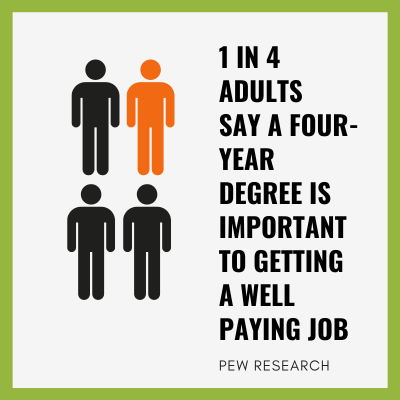After submitting your resume, a lot of companies now do a phone interview with a candidate before moving to an in-person interview. This helps ensure there is a match between candidate and employer before committing the time and resources to doing face-to-face interviews. If you get a phone interview opportunity, that means your resume and cover letter stood out from all of the other applicants and the hiring manager is interested in speaking with you personally. So, congratulations if you get a phone interview opportunity, it is not that easy!
Now, once you get a phone interview opportunity, you don’t want to mess it up. If you get through the phone interview well, you’ll typically be invited for multiple rounds of in-person interviews. The first in-person interview would be with a person(s) that you will likely work with or for. But first you need to ace this step in the process. So, what can you do in your phone interview to secure a face-to-face interview opportunity?
1 Make sure you do your homework and prepare for common questions
Research the company and position well – know what problem the company is solving, what services/products they offer, what problem they have and how this role contributes to the company’s success. Make sure you understand what is required and expected for the position you are applying for. Read the job description in depth, and prepare for the interview questions. Some of the most common questions in phone interview are “Tell me about yourself”, “What is your greatest strength?” “What is your greatest weakness?”. Check these links to watch interview preparation video series to construct good answers for these questions.
Some companies are also looking to see how you might react to particular situations in what are called behavioral questions, like: Tell me about a time when you struggled to work with a colleague, how did you work it out, what did you do? Prepare answers for these types of questions as well. These type of questions help the interviewer determine how well you fit within their organization and within a team environment. So, rehearse your answers to these questions and ask a professional colleague to review your prepared answer.
2 Be prepared to take calls anytime
If a company would like to have a phone interview, they would most likely ask for your availability and schedule the interview. However, some companies can call you without any warning. So, be ready to take a call and know which companies/positions you applied for. The last thing the interviewer wants to hear is “Which job is this again – I’ve applied to so many I can’t remember …”. That may be the case but there is a better way to determine who you are speaking with and the role they are looking to fill without giving the impression that you are firing off resumes to any job. Be prepared to respond to interview questions that show your professional abilities on the spot.
3 Secure a quiet room for phone interview
Be sure to secure a quiet room for your phone interview and always have your notes about the job/company at hand in order to quickly get to your desired location quickly when the interviewer calls. Noise would distract you and the hiring manager for sure, and you might not be able to perform your best in the phone interview as a result. So, identify the right place to have your phone interview in advance. Ensure that it will not be in-use at the time of your interview and have everything you need to conduct the interview (notes, pen, paper, etc.) ready.
4 Get hiring manager’s attention with “Hello”
During the phone interview, you have only your voice to express your personality and enthusiasm for the role. So, speak clearly and use your voice to be expressive about your confidence, your abilities and why you are interested in the role. If you speak too softly or are too casual or not expressive enough you’ll give the interviewer a negative impression. Get her/his attention from the first “Hello”, and give a good impression from the start. Be sure to end sentences completely, and demonstrate your clear and concise communication skills.
5 Take notes
If the hiring manager provides you any extra information about the position, the company, take notes. If he/she asks questions in the interview that you are not prepared for, take notes so that you can refine the answers to them for the next interview. By doing so, you can get ready for the face-to-face interview and/or another phone interview with other companies. For some people, phone interview takes some practice. Always think about how you can do better next time! The right amount of preparation will help you successfully showcase your knowledge and expertise in the phone interview so that you can move onto the next stage in the interview process.
What do you think? Leave us comments below.
Jobspeaker is a FREE service to help job seekers find better jobs, Login Today!


